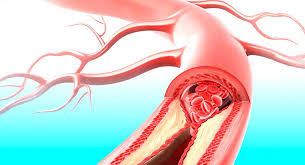
Strokes, sometimes referred to as a “brain attack,” can cause serious damage to your brain and it is caused when a part of your brain does not get the blood that it requires. This can happen for different reasons.
Experts classify strokes in two categories:
Ischemic stroke and Hemorrhagic stroke.
Ischemic strokes are the most common type of stroke. They occur when blood is blocked from reaching a part of the brain, such as when an artery is clogged by fatty deposits or when there is a blood clot.
Hemorrhagic stroke is caused by a blood vessel that breaks in the brain and blood then bleeds into the brain. This is sometimes caused by an aneurysm, which is a weak the spot in an artery that bursts.
In seniors, stroke signs can often go unrecognized. These are referred to as “silent” strokes. Silent strokes are common among older people and symptoms are often ignored.
The problem is that silent strokes are often a warning that a major stroke is coming.
According to stroke specialist, Claudette Brooks, MD, “Many people ignore symptoms of a small stroke, or they may not associate them with a stroke.”
Because these symptoms can go unnoticed and they are signs of a risk of a major stroke, it is important to learn what the symptoms are of a stroke and to know when to get help.
Here are some symptoms of a stroke to watch for in yourself, if you are over 63, or in loved ones who are over this age. You might save a life by knowing what to look for.
Beware of the sudden onset of:
Numbness in the face, legs, or arms.
This generally occurs on one side of the body. It can range from somewhat noticeable to very noticeable. Numbness or inability to move or control one side of the body is the most obvious sign of a stroke.
A severe headache.
Trouble speaking or confusion.
Trouble seeing in one or both eyes.
For women: watch out for the following unique symptoms –
Hiccups
Nausea Tiredness
Chest pain
Dizziness
loss of balance or trouble walking.
Pounding or racing heartbeat
If you or anyone you know experiences any of the above symptoms seek medical attention immediately.This article should not be used to treat or diagnose. And should be used for educational purposes only. Please always consult with a physician who is trained in diagnosing and treating diseases.
